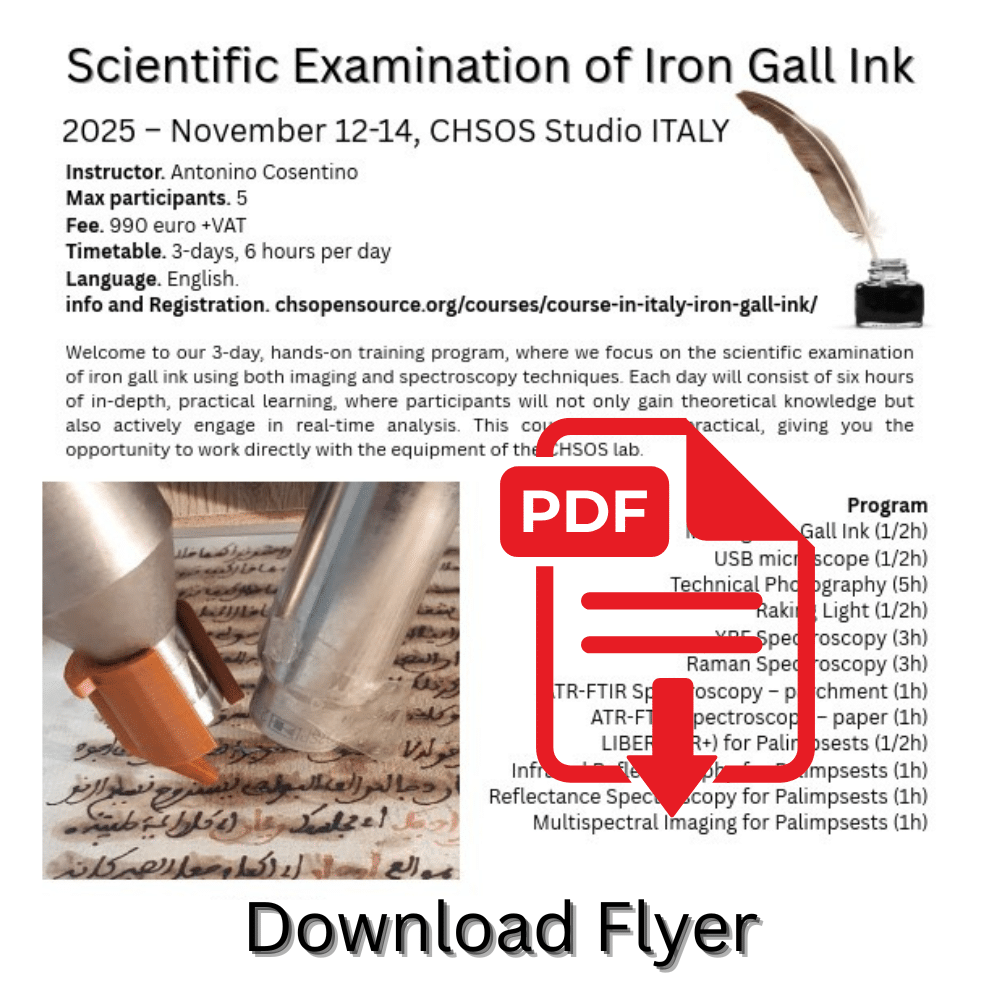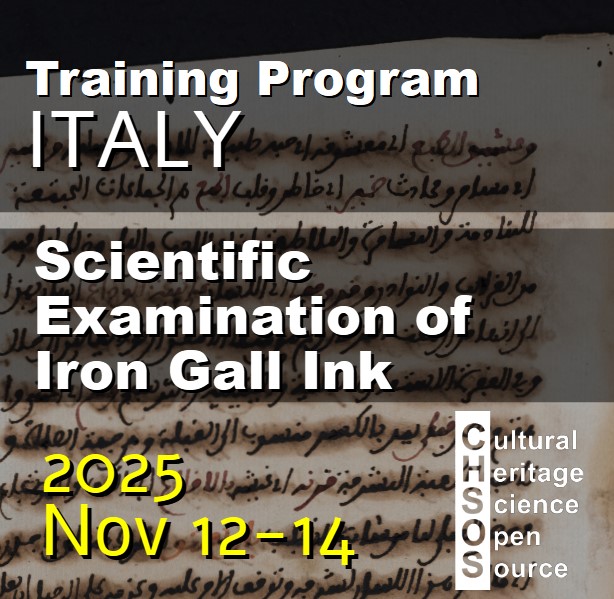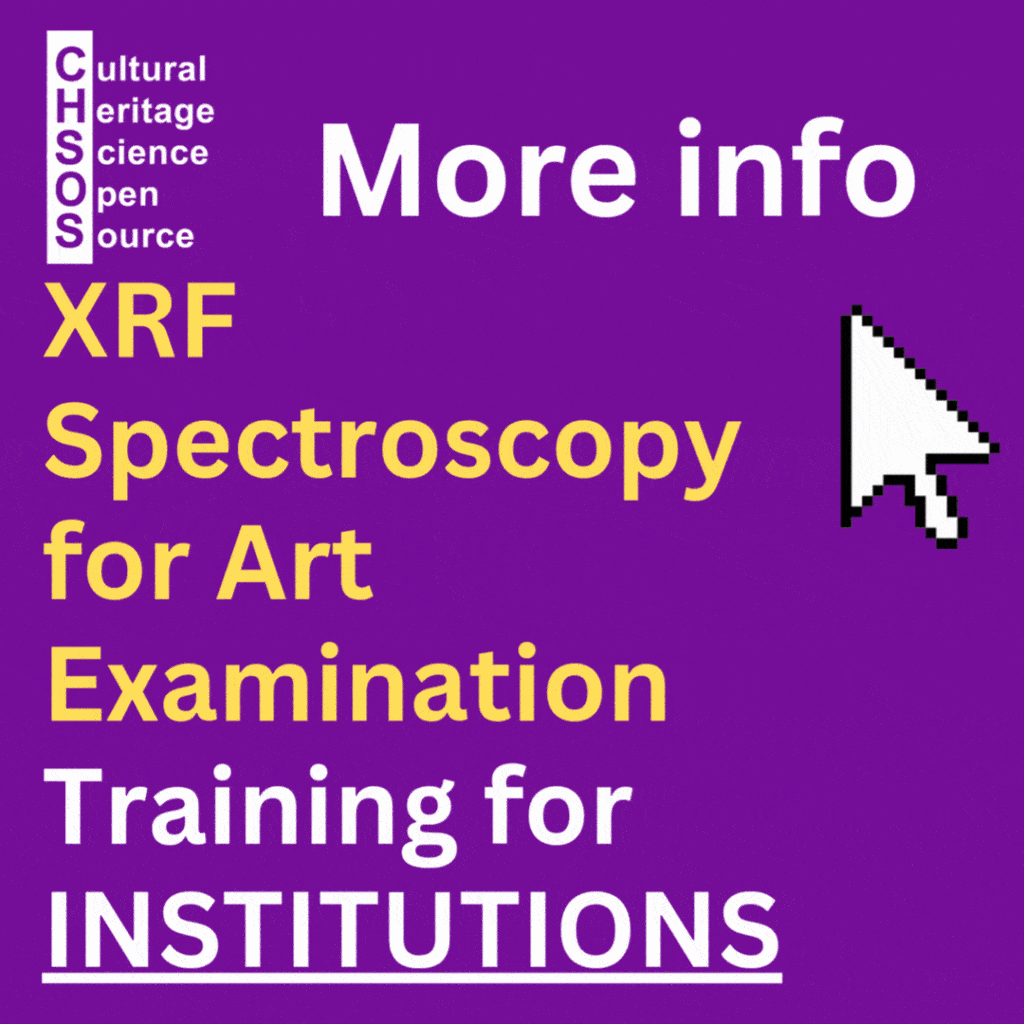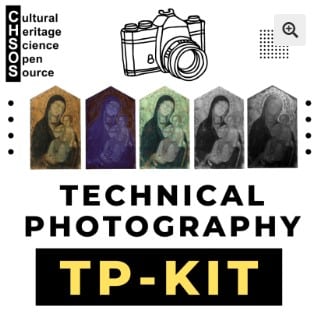
Our Training course are aimed to art conservation professionals that want to add new technical examination tools to their skills. Our courses are offered on a 1-1 base or max 5 participants.
We are looking for a collaborator to help us out to organize this event in Los Angeles. We offer a FREE voucher to the course. Contact us immediately if you are based in LA.
Info
Course: Low-cost methods for Art Examination
Seats: max 5 participants. Our training consists of hands-on activities.
Dates: Oct 17-19, 2016
Location: Los Angeles

DOWNLOAD Training Program on Low-cost methods for Art Examination Oct 17-19 2016
Program
1st Day. Technical Photography
Technical Photography represents a collection of broadband spectral images realized with a modified full spectrum digital camera and different lighting sources and filters. We will practice hands-on shooting and editing for these technical photos:
VIS, Visible
RAK, Raking light Photography
UVF, Ultraviolet Fluorescence Photography
UVR, Ultraviolet Reflected Photography
IR, Infrared Photography
IRT, Infrared Transmitted Photography
IRF, Infrared Fluorescence Photography
IRFC, Infrared False Color Photography
2nd Day. Panoramic Infrared Reflectography, Reflectance Spectroscopy, Reflectance Transformation Imaging
Infrared Reflectography allows to identify underdrawing and pentimenti. We coupled it with the panoramic method in order to acquire infrared reflectograms with a fast and lightwiegth set up.
Reflectance Spectroscopy (RS) shows, for each wavelength, the ratio between the intensity of the reflected light and the incident light, measured with respect to a standard white reference (reflectance). Reflectance spectra provide information useful for the identification of pigments.
Reflectance Transformation Imaging (RTI) is a computational photographic technique and it is used in a number of fields related to art examination and documentation because it provides a virtual and enhanced visualization of an object’s surface.
3rd Day. Multispectral Imaging
Multispectral Imaging (MSI) is used to map and tentatively identify pigments and in paints on works of art. It is also useful to visually enhance old and faded documents. Thanks to the first crowdfunded research in art conservation science, CHSOS has developed an MSI system using 18 bandpass filter and a full spectrum digital camera that covers the 400-920 nm spectral range.
Shooting spectral images.
Splitting spectral images into RGB channels.
Registering spectral images.
Calibrating spectral images.
Spectra reconstruction and mapping.








